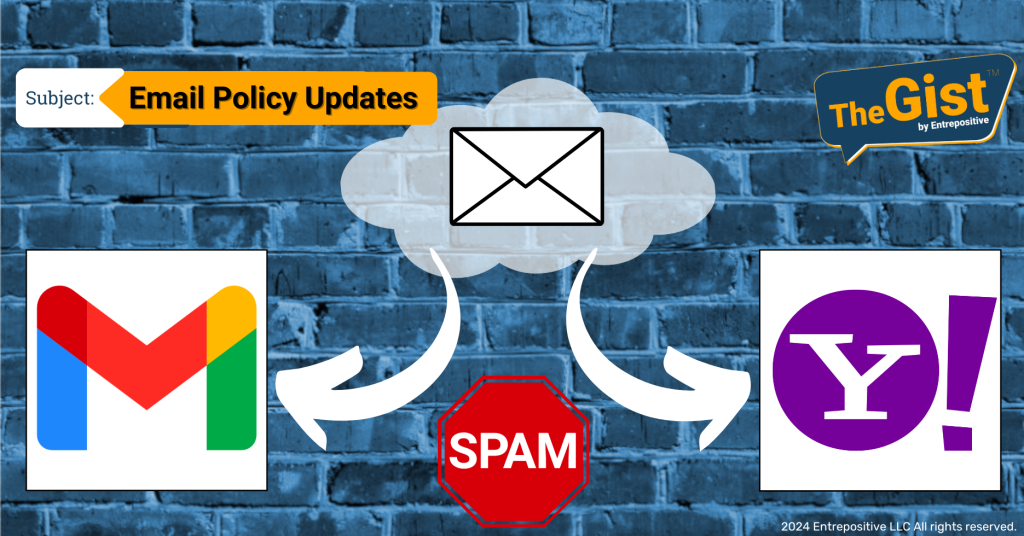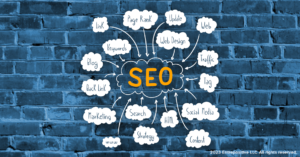This article sheds light on the upcoming Google and Yahoo email deliverability policy changes, covering authentication, clean lists, domain DNS records, spam compliance, easy unsubscribes, and email security.
Google and Yahoo both recently announced, in an “uncoordinated” initiative, that they will each be enforcing a new set of policies regarding Google and Yahoo email deliverability. With the aim at reducing spam email, these two providers are tightening the controls on the emails they let through to their own email users.
Disregarding these changes can negatively impact your business, so it’s worth your attention. For now, this will only impact emails sent to recipients with Gmail and Yahoo emails, however those alone will likely make up a substantial portion of any email list. This article will help you understand the changes in policy and how to best prepare and protect your email marketing activities.
Jump ahead:
Why You Should Read: Consequences of Non-Compliance
Failure to meet the new requirements could lead to Google and/or Yahoo blocking the emails you send to recipients with the *@gmail.com and *@yahoo.com domains. This could potentially cause long-term damage to your business email and server’s reputations and impact customer engagement and revenue generated through email marketing. This can impact money coming in. Is that enough reason to pay attention? Read on.
Mastering the Email Authentication Tango
In the imminent policy update from Google and Yahoo, email marketers are urged to master the Authentication Tango, with SPF, DKIM, and DMARC being the core components of this dance. These adjustments, coming ominously into effect “by February 2024,” underscore the need to transition from free to custom domains. In other words, it’s time to finally stop sending business emails from your Gmail address. Spend the twenty bucks annually for a proper domain name, and get professional email (and get up to $100 off with this link).
Diving a bit deeper, in your domain’s DNS records, you must specify SPF and DKIM records, aligning your sent emails with the updated rules. A DMARC policy will now also be required in the DNS records, to improve domain security and reduce the risk of email spoofing. For a free audit of your email server and DNS records, contact us here.
Tip: there can only be one SPF record among your DNS records; if you need to include multiple sending domains, you’ll have to include them in one SPF record.
Keep that Email List Clean
In the midst of evolving policies from Google and Yahoo, the spotlight is once again on list quality. The right way to market to an email list is to make the unsubscribe process easy and constantly clean the list. Sadly, this practice seems to be more the exception than the rule; although Google and Yahoo’s policy changes might adjust that. Clean lists will soon become the status quo in the email marketing world.
Rather than a one-and-done process, keeping a clean list is an ongoing activity baked straight into the marketing process. But if you’ve got a list now and you’re not sure about its quality, we can help you get a clearer understanding of your list. We can also clean lists of 5,000 or more. If a clean list is what you need, contact us here.
Watch Out for Spam Filters
Google and Yahoo are tightening the reins on spam. Substantially. What used to barely make its way to the Inbox will now land solidly in SPAM. The email deliverability policy updates suggest an enforced spam complaint rate threshold of under 0.3%. This means you’ll need to seriously avoid your readers clicking the spam button on your emails. The easiest way to do this, and also a recommended best-practice, is to make unsubscribing very easy. On the subject of unsubscribing…
A One-Click World: Simplifying the Unsubscribe Process
Google and Yahoo will soon require a simple, one-click unsubscribe process placed inside all marketing emails. Your marketing emails should now include a one-click unsubscribe option for your readers to easily opt-out. Regardless of the upcoming policy changes, this is a good idea anyway.
Adapting to the Future of Email Marketing
The impending policy shift signals a broad, strategic shift in the email marketing landscape. It’s likely other email providers besides Google and Yahoo will eventually adopt these policy changes. Ignoring these major changes could result in a poor email server or domain reputation, which could place critical emails in your recipient’s spam box. Stay ahead of the curve with these changes to ensure your campaigns continue to thrive and grow. Happy emailing!









